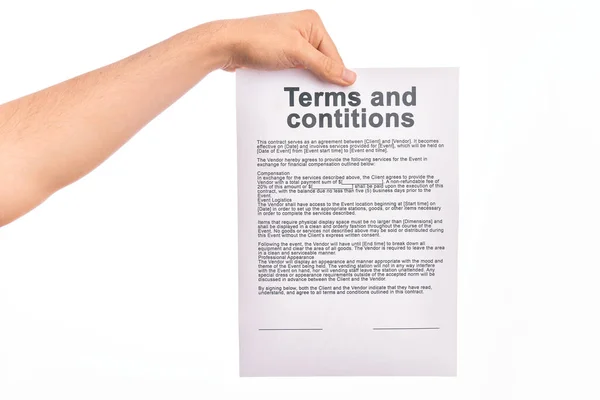Highlights
- WARN Act Oklahoma mandates employers with 100 or more full-time employees to provide 60 days' notice before significant workforce reductions or plant closures.
- While Oklahoma lacks specific laws dictating the number of days off employees can take, regulations encompass rest periods, holidays, and vacation time.
- Employers have discretion in crafting policies around paid time off (PTO), sick leave, and holidays.
- Oklahoma's termination laws primarily revolve around at-will employment and prohibit discriminatory or retaliatory terminations.
Are you aware of the WARN Act Oklahoma guidelines and how they impact your business? Handling compliance regulations can be daunting, but understanding the WARN Act is crucial to protect both employers and employees.
In this guide, we'll delve into the essentials of the WARN Act in Oklahoma. Covering its requirements, exemptions, and implications, we'll provide you with a comprehensive overview to ensure your compliance and mitigate risks effectively.
How Does the WARN Act Oklahoma Work?

The Worker Adjustment and Retraining Notification (WARN) Act is a federal law in the United States that requires certain employers to provide advance notice to employees before implementing mass layoffs or plant closures. However, some states have their versions of the WARN Act with additional requirements or provisions.
In Oklahoma, the WARN Act generally follows the federal guidelines. Employers with 100 or more full-time employees are typically required to provide 60 days' notice to affected employees, unions, and local government authorities before a mass layoff, plant closure, or significant reduction in workforce. This notice allows employees and communities time to prepare for the impact of job losses and seek alternative employment or training opportunities.
The Oklahoma WARN Act, like its federal counterpart, aims to provide protection and assistance to workers and communities affected by significant employment changes. However, specific details and requirements may vary. So, employers and employees should refer to the Oklahoma Department of Labor or seek legal advice for accurate and up-to-date information.
Note: Explore lucrative work from home jobs with no experience on Yulys, offering a seamless transition to remote employment.
What are Oklahoma Labor Laws Days Off?
In Oklahoma, labor laws regarding days off generally revolve around regulations concerning rest periods, holidays, and vacation time. However, Oklahoma does not have specific laws mandating the number of days off that employees must receive. Instead, it's typically left to the discretion of employers to determine their policies regarding days off, subject to certain requirements such as adherence to minimum wage and overtime laws.
Employers in Oklahoma may offer paid time off (PTO), sick leave, vacation days, or holidays as part of their employment packages. Still, they are not legally obligated to provide these benefits. Additionally, employers must comply with federal laws, such as the Family and Medical Leave Act (FMLA), which may entitle eligible employees to take unpaid leave for certain medical and family reasons.
What Are Oklahoma Termination Laws that Employers Must Follow?

In Oklahoma, termination laws primarily revolve around at-will employment, which means employers can generally terminate employees for any reason as long as it's not discriminatory or in violation of public policy. However, there are still certain legal requirements and considerations that employers must follow when terminating employees:
- Discrimination: Employers cannot terminate employees based on protected characteristics such as race, color, religion, sex, national origin, age, disability, or genetic information. Doing so would violate federal anti-discrimination laws, including Title VII of the Civil Rights Act of 1964 and the Age Discrimination in Employment Act (ADEA).
- Retaliation: Employers cannot terminate employees in retaliation for exercising their rights, such as filing a complaint of discrimination or harassment, participating in an investigation, or engaging in other protected activities. Federal and state laws prohibit retaliation against employees for exercising their rights.
- Contractual Obligations: If an employment contract or collective bargaining agreement exists, employers must follow the termination procedures outlined in the contract. Terminating an employee in violation of contractual terms could result in legal action for breach of contract.
- Final Wages: Oklahoma law requires employers to pay employees their final wages promptly upon termination. This includes any wages earned up to the termination date, as well as any accrued but unused vacation or PTO days unless otherwise provided in an agreement or policy.
- Unemployment Benefits: If an employer terminates an employee, the employee may be eligible for unemployment benefits. When responding to unemployment claims, employers must provide accurate information to the Oklahoma Employment Security Commission (OESC) regarding the reasons for termination and any other relevant details.
- Notification: While not legally required, providing notice of termination to employees is considered a best practice and may be required by company policy or collective bargaining agreements.
Note: Yulys allows you to post jobs for free, explore a vast pool of talent, and effortlessly streamline your recruitment process.
What is the Oklahoma WARN List Of Requirements?

The requirements for compliance with the WARN Act Oklahoma generally align with the federal WARN Act, but there may be some differences. The WARN Act Oklamhoma typically applies to businesses with 100 or more employees. Here are the key requirements:
- Notice Period: Covered employers are generally required to provide at least 60 days' advance notice to affected employees, labor unions representing those employees, and certain government entities before implementing a plant closure or a mass layoff.
- Affected Employees: The WARN Act applies to "affected employees," which generally include those who will be laid off or have their work hours reduced by more than 50% over six months due to a plant closure or mass layoff.
- Type of Events Covered: The WARN Act applies to two main types of events: plant closings and mass layoffs.
- Plant Closure: A plant closing is the shutdown of a single site of employment or one or more facilities or operating units within a single site of employment, resulting in an employment loss for at least 50 employees during any 30 days.
- Mass Layoff: A mass layoff involves a reduction in force that is not the result of a plant closing and results in an employment loss at a single site of employment for at least 33% of the workforce (or at least 50 employees) during any 30 days.
- Exceptions: There are certain exceptions to the WARN Act's notice requirements, such as when layoffs are the result of unforeseeable business circumstances or natural disasters.
- Penalties: Employers who fail to comply with the WARN Act may be liable for back pay and benefits for each day of violation, as well as civil penalties.
Note: Experience a variety of online home employment opportunities on Yulys, tailored to fit your unique skill set and lifestyle.
To Whom Should Oklahoma Warn Notice Be Given?
Employers subject to the requirements of the Oklahoma WARN Act should provide notice to several parties:
- Affected Employees: Employers must give written notice directly to the affected employees who will be laid off or have their work hours reduced as a result of a plant closure or mass layoff.
- Labor Unions: If a labor union represents the affected employees, employers must provide written notice to the appropriate union representative(s).
- Local Government Officials: Employers should provide written notice to the local chief elected official of the unit of local government where the affected employment site is located. This typically includes the mayor or city manager of the city or the county executive or administrator if the site is located in an unincorporated area.
- State Dislocated Worker Unit: Employers should also give written notice to the Oklahoma Department of Commerce's Rapid Response Coordinator or the equivalent state agency responsible for workforce development. This ensures that the state can assist affected employees in finding new employment or accessing retraining programs.
- Oklahoma Employment Security Commission (OESC): Employers should provide written notice to the OESC, which administers unemployment insurance benefits in the state. This allows the OESC to process any unemployment claims filed by affected employees in a timely manner.
Note: Use Yulys' employment staffing services to elevate your team with precision, ensuring you find the perfect candidate for maximum productivity.
Summary
Understanding the intricacies of the Oklahoma WARN Act and termination laws is crucial for both employers and employees in Oklahoma. By adhering to these laws, employers can ensure fair treatment of their workforce during times of significant change, while employees can be better prepared to navigate any challenges that may arise. Additionally, clarity on days off regulations provides a foundation for maintaining a healthy work-life balance.
FAQs
What Is Wrongful Termination In Oklahoma?
Wrongful termination in Oklahoma occurs when an employer fires an employee for illegal reasons, such as discrimination based on race, gender, age, religion, or disability; retaliation for whistleblowing or exercising legal rights; or in violation of an employment contract or collective bargaining agreement.
What Are The Oklahoma Labor Laws Hours Per Day?
In Oklahoma, there are no specific state laws dictating the maximum number of hours an employee can work per day for adults. However, employees under 16 years old have restrictions, limiting them to no more than 3 hours on a school day and 8 hours on a non-school day, with a maximum of 18 hours per week during the school year.
